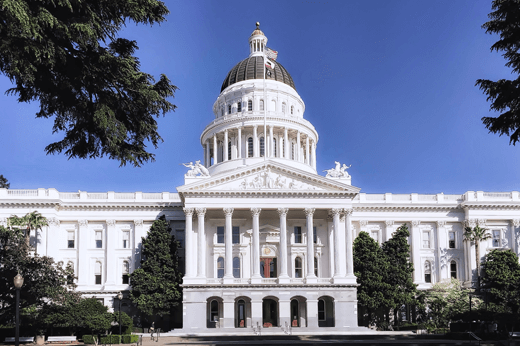 Briefing
Briefing
Pending Bills Carried Over from California’s 2023 Legislative Session
As the 2024 year begins, the California Legislature is reconvening to introduce new bills. However, there are certain bills that have been carried over from last year that could potentially be passed in 2024. There are certain deadlines the Legislature faces to keep 2023 bills alive for 2024. Any bills that are still in the house of origin, Assembly or Senate, will need to be passed by that house’s floor by January 31 to stay alive for 2024. Those bills that were passed in their house of origin will have to wait to be heard later in the legislative session. Below are some of the bills that were carried over from 2023.
Human Resources
AB 331 – Automated Decision Tools
This bill aims to prohibit "algorithmic discrimination" in consequential decision making that employs artificial intelligence (AI) when such tools lead to unjustified treatment of disadvantaged individuals based on their actual or perceived race, color, ethnicity, sex, religion, age, national origin, limited English proficiency, disability, veteran status, genetic information, reproductive health, or any other classification protected by state law. Consequential decision making encompasses more than just employment practices; it also includes decisions related to accreditations, financial aid (including scholarships), housing, family planning, health care, legal services, voting, and more. The bill also outlines administrative penalties for the use of "algorithmic discrimination." This is likely to be one of several bills aimed at regulating AI this year, as legislators in California and across the country have become concerned about the potential implications of the use of ChatGPT and other widely available AI tools.
Status: The bill was held under submission in the Assembly Judiciary Committee.
AB 518 – Paid Family Leave: Eligibility: Care for Designated Persons
This bill sought to expand the eligibility for benefits under the Paid Family Leave (PFL) program to include individuals taking time off work to care for a seriously ill designated person. The designated person could be anyone, whether related by blood or with an association equivalent to that of a family member. Although other leave bills were passed in 2023, this bill was not prioritized.
Status: This bill was passed in the Assembly but ordered to the inactive file in the Senate.
AB 810 – Athletics Departments: Hiring Practices
This bill would require a post-secondary educational institution, during the hiring process of an employee or volunteer in the athletics department, to contact the former employer of the applicant or volunteer to determine if the applicant violated any employment policies of the applicant’s former employer. If enacted, this bill will impose an additional requirement on community colleges in their hiring practices.
Status: This bill was held in the Assembly Higher Education Committee.
Loss control
AB 1028 – Reporting of Crimes: Mandated Reporters
Current law obligates health practitioners to report to law enforcement when they suspect that a patient has suffered physical injury inflicted by the patient's own actions or by another person using means such as a firearm, assault, or abusive conduct. This bill sought to eliminate the reporting requirement for suspected injuries and, instead, require reporting only when the patient has suffered an actual wound or physical injury. It would also mandate the provision of brief counseling, education, or other support, as well as a warm handoff or referral to local and national domestic violence or sexual violence advocacy services. A health practitioner is defined as someone employed by a health facility, clinic, physician’s office, local or state public health department, local government agency, or a clinic or other type of facility operated by a local or state public health department. This bill would potentially apply to healthcare providers at public schools and colleges.
According to the bill’s author, “[i]n a 2020 survey done by the National Domestic Violence Hotline of survivors who had experienced mandated reporting, 83.3% of survivors stated mandatory reporting made the situation much worse, somewhat worse, or did nothing to improve the DV situation. 27% of callers reported that they did not seek healthcare because of mandatory reporting requirements.” This bill is intended to increase access to healthcare for survivors of domestic violence or assault.
Status: This bill passed in the Assembly but was placed in the Senate suspense file.
P&C
AB 942 – Postsecondary Education: Sex Equity
This bill aimed to explicitly include sexual harassment as a form of sex-based discrimination prohibited under Title IX. Title IX is one of the areas where we can expect to see additional legislation in California this year.
Status: This bill was held in the Assembly Higher Education Committee.
School Safety
AB 960 – School Safety: Web-Based or App-Based School Safety Programs
This bill aimed to require public schools with an enrollment of 100 students or more to implement web-based or app-based school safety programs, including multilayered digital maps of the schoolsite, the ability to alert first responders, and detailed schoolsite information.
Status: This bill was held in the Assembly Education Committee.
AB 1299 – School Safety: School Resource Officer: School Police Officers: School Safety Plans
This bill aimed to establish specific requirements for peace officers, including school resource officers (SROs), employed by the governing board of a school district to report directly to the principal of the school while on the school campus, except as provided. It also required the development of procedures and policies regarding law enforcement's use on school campuses, including the prohibition of handcuffs or pepper spray unless necessary to prevent the loss of life. The use of peace officers in schools as well as such officers’ use of handcuffs and/or pepper spray continues to be an area of controversy.
Status: This bill was held in the Assembly Education Committee.
SB 483 – Pupil Rights: Prone Restraint
This bill aimed to prohibit the use of prone restraints, which would include prone containment, on students with exceptional needs in public schools. This bill shows that the restraint of children with exceptional needs remains a hot button issue. A 2021 study from researchers at Cornell University's Residential Child Care Project examined the deaths of dozens of children from restraint between 1993 and 2018. About half the deaths involved children in the prone position.
Status: This bill was held in the Senate Education Committee.
SB 643 – School Safety: Safe-To-Tell-Program
This bill would require school districts to establish an anonymous reporting system for any person to anonymously report any dangerous, violent, or unlawful activity that is being conducted or threatened to be conducted on the property of the Local Educational Agencies (LEA) or activity sponsored by the LEA. The LEA is to prominently post information regarding the reporting system on the schoolsite’s website. The LEA is to report specified information to the state department of education.
Status: This bill was passed in the Senate, but was held in the Assembly Education Committee.
SB 868 – Pupil Safety: Trauma Kits
This bill, contingent upon an appropriation for its purposes, would require each school district, county office of education, and charter school to equip each classroom at each of its schoolsites with a trauma kit, inspect and replace each trauma kit, as necessary, upon each use and at least once every three years, and notify at least once per year its employees of the location of the trauma kits and provide them with the contract information for training in the use of the kit. The bill exempts from civil liability a person who renders emergency care or treatment using a trauma kit at the scene of the emergency.
Status: This bill was passed in the Senate, but was held in the Assembly Education Committee.
Keenan is not a law firm and no opinion, suggestion, or recommendation of the firm or its employees shall constitute legal advice. Clients are advised to consult with their own attorney for a determination of their legal rights, responsibilities, and liabilities, including the interpretation of any statute or regulation, or its application to the clients’ business activities.
Subscribe
Subscribe to the Keenan Blog




